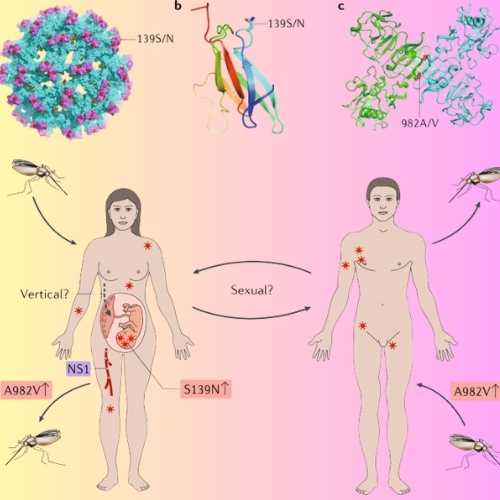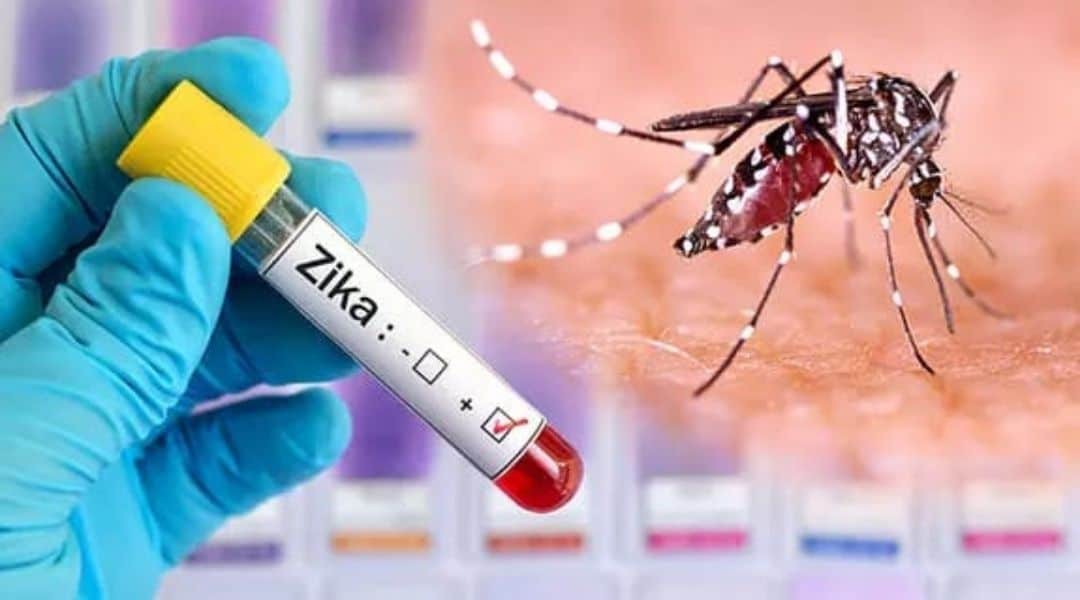Blog
Zika Virus

Zika Virus: Causes,Symptoms,Infection,Treatment & Prevention

Introduction to Zika Virus
Zika virus is a mosquito-borne flavivirus. It is spread by mosquitoes. Which was first identified in Uganda in 1947. It is spread mainly by mosquitoes of the Aedes species, which also spread dengue and chikungunya viruses.Zika virus attracted worldwide attention due to its rapid spread across the Americas and its serious effects on the health of pregnant women in particular. And this virus is very dangerous because if it is not taken care of on time, it can even take life.
History and Origin of Zika Virus
Zika virus was first discovered in 1947 in a rhesus monkey in the Zika Forest of Uganda. It was later identified in humans in Uganda and Tanzania in 1952. For decades, the virus was relatively obscure, causing only sporadic outbreaks in Africa and Asia.However, in 2015, a large outbreak in Brazil brought the Zika virus into the global spotlight, leading to increased research and public health initiatives.
How Zika Virus Spreads
The primary way Zika virus spreads is through the bite of an infected Aedes mosquito. These mosquitoes bite during the day but can also bite at night. Apart from mosquito bites, Zika virus can also spread through the following means:
Mother to child during pregnancy or around the time of birth.
Sexual contact with an infected person.
Blood transfusion (although this is rare).
Symptoms of Zika Virus Infection
Most people infected with Zika virus experience mild symptoms or are asymptomatic. When symptoms do occur, they typically last 2 to 7 days and include:
Fever
Rash
Joint pain
Conjunctivitis (red eyes)
Muscle pain
Headache

Complications and Risks Associated with Zika Virus
Zika virus usually causes mild illness, but it can cause severe illness. The most significant risks are for pregnant women, as the virus can cause serious birth defects, such as microcephaly, where babies can be born with an abnormally small head and an underdeveloped brain. Additionally, Zika virus infection has been linked to Guillain-Barré syndrome, a condition in which the immune system attacks the nerves, leading to muscle weakness.
Diagnosing Zika Virus
Diagnosis of Zika virus involves taking the patient’s medical history, symptoms, and laboratory tests. Blood or urine tests can detect the presence of Zika virus or antibodies. Dengue and chikungunya can be taken care of by combining symptoms with other mosquito-borne diseases.

Treatment and Management of Zika Virus
There is currently no cure for Zika virus. Management focuses on relieving symptoms. Recommended measures include:
Rest
hydration
Pain and fever relief with acetaminophen (avoid aspirin and non-steroidal anti-inflammatory drugs until dengue is ruled out)
Avoid mosquito bites during the first week of illness to prevent further transmission of the disease
Zika Virus and Pregnancy: What You Need to Know
Pregnant women are at significant risk when it comes to the spread of Zika virus among women. It is important for pregnant women to take extra precautions to avoid mosquito bites and to discuss any travel plans to areas with active Zika transmission with their healthcare provider. Pregnant women should avoid non-essential travel to areas with Zika outbreaks.
Preventing Zika Virus Infection
Zika virus infection can be largely prevented by reducing mosquito bites and controlling mosquito populations. Effective prevention strategies include:
using pesticides
wearing long sleeve shirts and long pants
Staying in places with air conditioning or using window and door screens to keep mosquitoes away
If you are outside or in areas without screens, use a mosquito net when sleeping.
To eliminate stagnant water.
FAQs About Zika Virus
There is no evidence that the Zika virus can be transmitted through breastfeeding. The benefits of breastfeeding outweigh any potential risk of Zika virus transmission.
As of now, there is no approved vaccine for the Zika virus, but research is ongoing, and several candidates are being tested.
The virus usually stays in the blood for about a week, but it can be found in other body fluids, such as semen, for longer periods.
It is believed that once you have been infected with the Zika virus, you are likely to be protected from future infections.
Travelers should take preventive measures to avoid mosquito bites and consult with healthcare providers before traveling. Pregnant women should avoid travel to areas with active Zika outbreaks.







